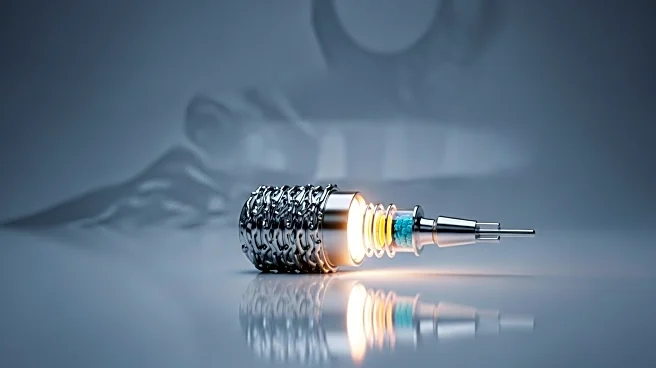What is the story about?
What's Happening?
Smith+Nephew, a global medical technology company, has announced significant clinical evidence and market updates for its REGENETEN Bioinductive Implant. The implant, which aids in the repair of rotator cuff tears and other tendon injuries, has been recognized in the American Academy of Orthopaedic Surgeons' Clinical Practice Guideline for its effectiveness. Recent studies, including a two-year randomized controlled trial, have shown a 65% reduction in re-tear rates when using the implant compared to standard repair methods. Additionally, Smith+Nephew has expanded the implant's indications to include extra-articular ligament injuries, initially focusing on hip capsule repair. Since its introduction in 2014, over 150,000 procedures have been performed globally using the REGENETEN Implant.
Why It's Important?
The advancements in the REGENETEN Bioinductive Implant represent a significant step forward in orthopedic surgery, particularly in the treatment of rotator cuff injuries, which affect over a million people annually. The implant's ability to reduce re-tear rates and improve patient outcomes could lead to widespread adoption, potentially reducing healthcare costs associated with repeat surgeries. The expansion into extra-articular ligament injuries opens new markets and opportunities for Smith+Nephew, enhancing their position in the competitive medical device industry. This development also underscores the importance of innovation in medical technology to improve patient care and outcomes.
What's Next?
Smith+Nephew plans to continue expanding the indications for the REGENETEN Implant, potentially addressing a broader range of soft tissue injuries. The company will likely focus on further clinical research to support these expansions and work on increasing market penetration in the U.S. and globally. Surgeons and healthcare providers may begin to adopt the implant more widely, influenced by the positive clinical outcomes and the endorsement from the AAOS. Regulatory approvals and reimbursement decisions will play a crucial role in the implant's future market success.
















